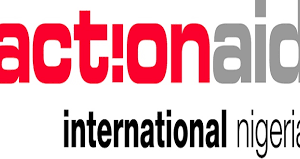ActionAid Nigeria has expressed concern that the political turmoil in Rivers state, marked by constitutional violations, now threatens the stability of Nigeria’s democratic institutions.
The Board of Directors of ActionAid Nigeria on the state of the nation in a press statement said the suspension of a sitting Senator for up to six months, and without an independent investigation into her allegations of sexual harassment against the Senate President, reflected systemic gender-based discrimination in politics.
The Chair, ActionAid Nigeria’s Board of Directors, Ms. Rabi Isma, urged President Tinubu to uphold the rule of law and ensure that all actions taken in response to the crisis in Rivers state strictly adhered to constitutional provisions.
She said the unconstitutional approval of the state of emergency in Rivers state sets a dangerous precedent that threatens Nigeria’s democracy.
She said the National Assembly must urgently rectify this violation by providing clear, indisputable evidence of a two-thirds majority vote.
“The President must also call to order the Sole Administrator, whose controversial appointments and disregard for court orders further undermine democratic institutions.
“The President’s prompt intervention is essential to restore constitutional order and prevent further erosion of democratic governance in Rivers state.
On the economic sphere, she said Nigeria faced severe fiscal strain with its ₦54.99 trillion 2025 budget.
“Yet, amidst this economic distress, banks continue to post record profits, driven largely by levies, transaction fees, and forex gains which exposes a troubling disconnect between the financial sector’s success and the harsh economic realities facing ordinary Nigerians.
“Meanwhile, the abrupt withdrawal of over $60 billion in foreign aid has also severely impacted health services, agriculture, and social welfare programmes.
“Adding to this, the World Bank’s April 2025 Africa’s Pulse report forecasts a 3.6 percentage point increase in Nigeria’s poverty rate by 2027, underscoring the deepening economic crisis.
“Despite a statistical decline in inflation, the cost-of-living crisis remains severe, with food, fuel, and transportation costs soaring.
“Amid these pressing challenges, the board of directors acknowledges the recent upgrade of Nigeria’s sovereign credit rating by Fitch Ratings from ‘B-‘ to ‘B’.
“This reflects improvements in policy credibility and reforms such as exchange rate liberalisation and tighter monetary policies, signaling potential for better economic stability.
“However, the fuel subsidy removal remains contentious because it disproportionately impacts vulnerable groups. At the same time, we commend the government for supporting the Reserved Seats for Women Bill, a vital step toward addressing the underrepresentation of women in politics.
“The federal government must take decisive steps to diversify revenue sources and improve domestic resource mobilisation. This includes implementing progressive, gender-responsive tax reforms, intensifying efforts to curb illicit financial flows, and ensuring better transparency in public finance management.
“To shield vulnerable populations from the immediate consequences of aid reductions, we reiterate that there must be increased investment in social protection programmes to ensure continued access to healthcare, nutrition, and essential services.
“We also recommend that local manufacturing and food production systems be strengthened to reduce dependency on external agricultural assistance and in securing food sovereignty.”
